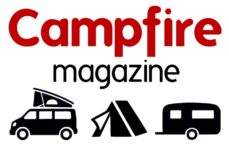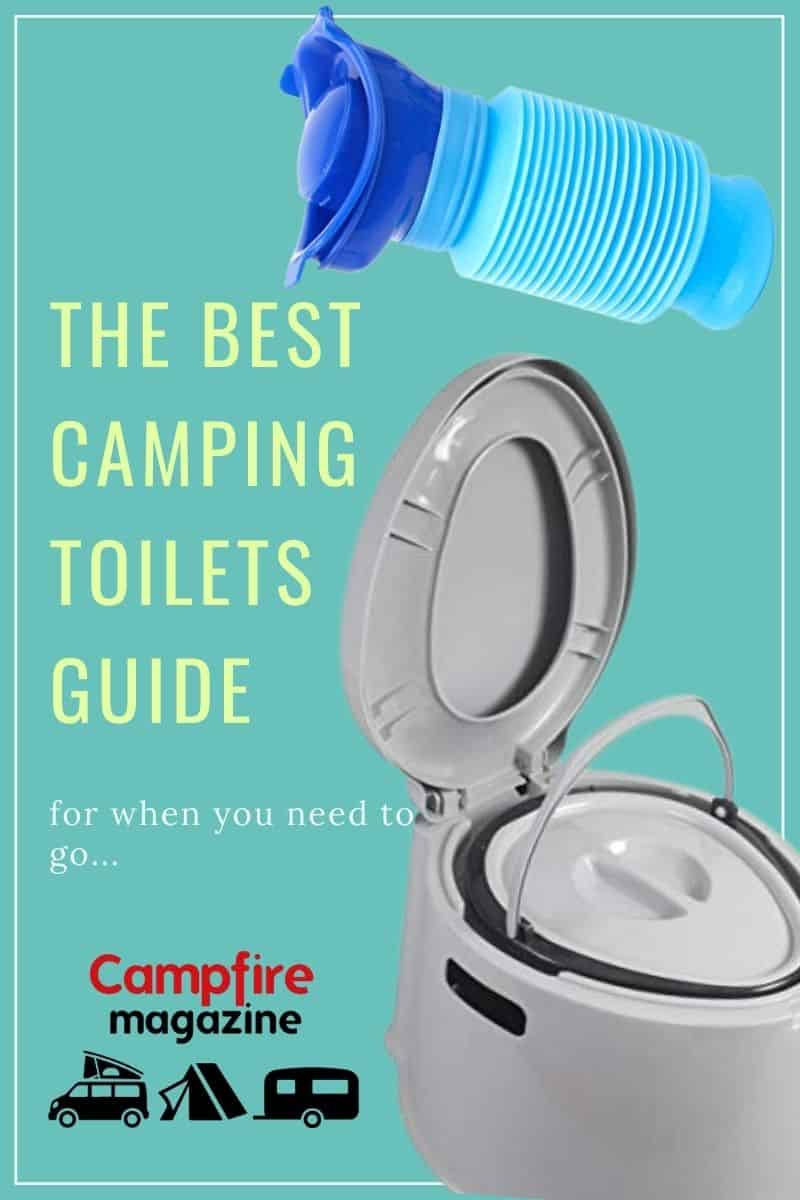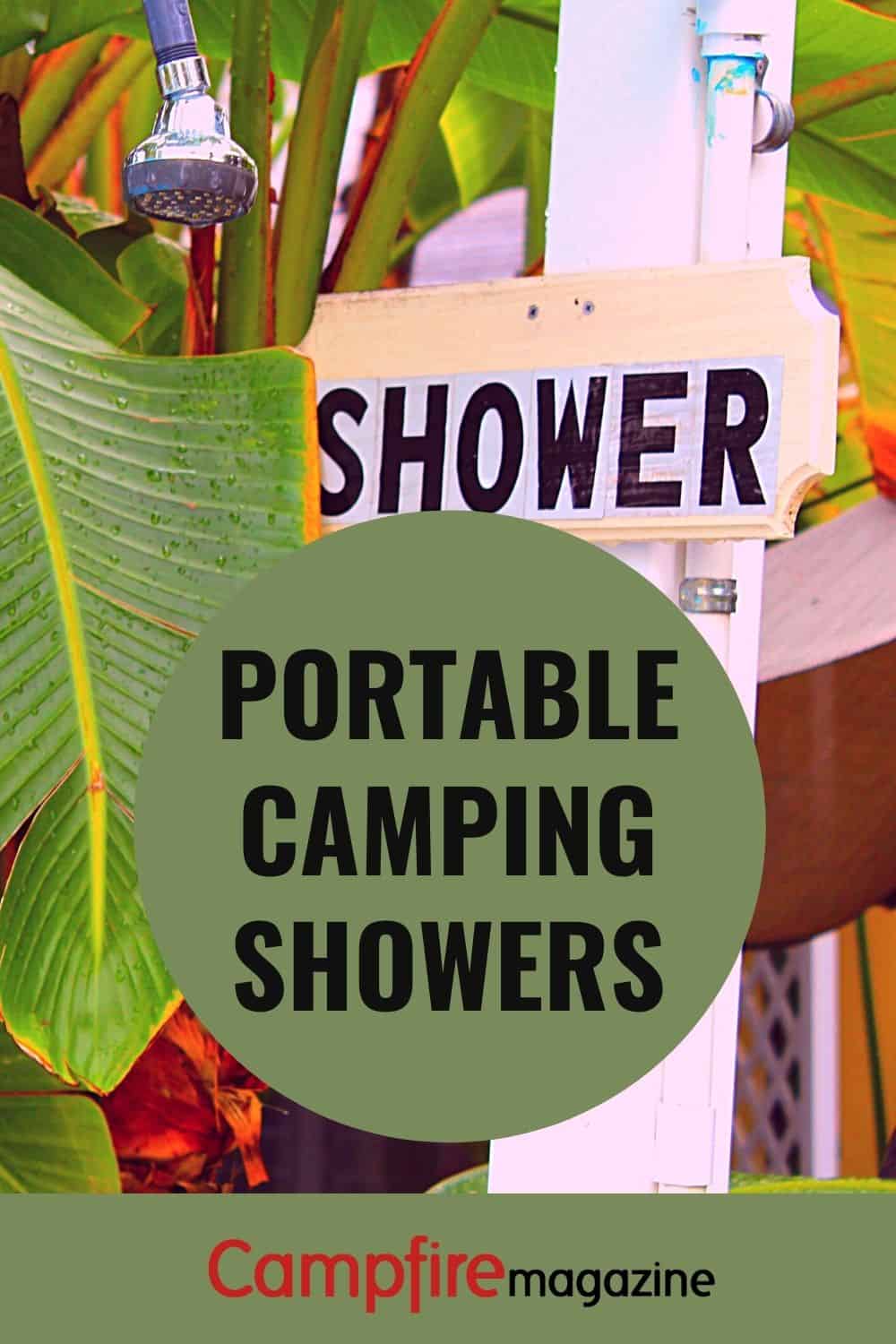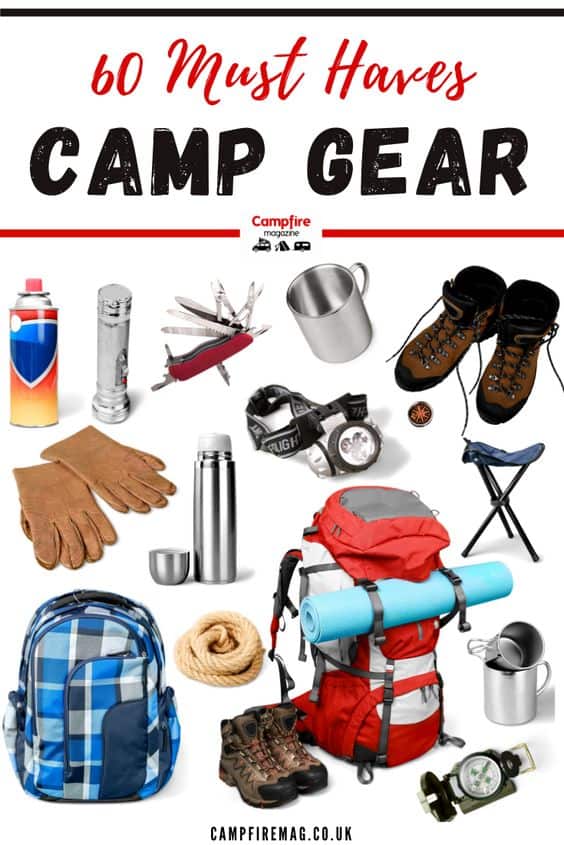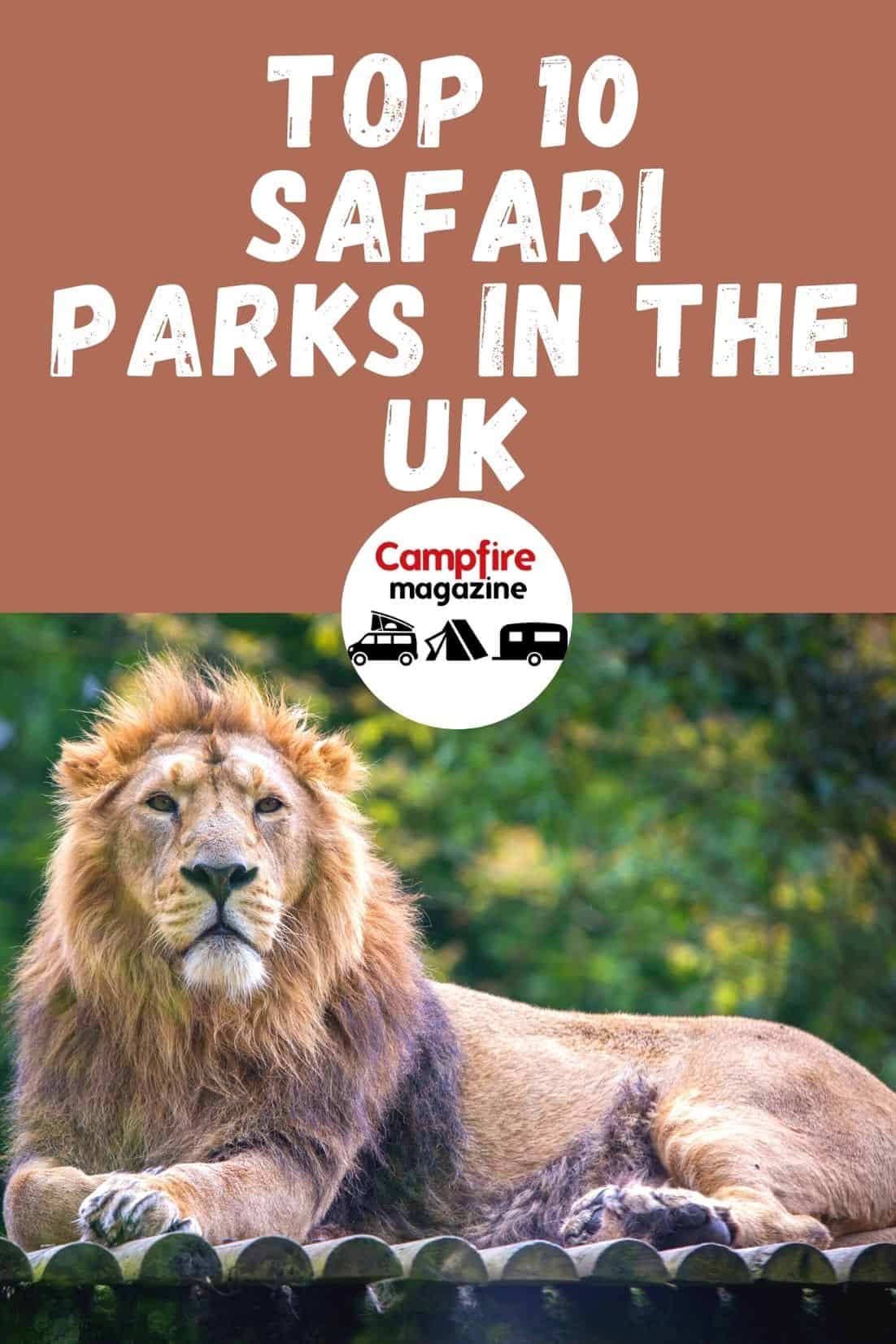We’ve had a zillion questions from readers (and from a couple of national newspapers) about how camping will work alongside Covid.
Can we go camping again? Can we wild camp? Will campsites open their toilets? How will things be different? These are just a few.
Here’s what you need to know about camping in the UK or in Europe.
Latest update: 19th April, 2021
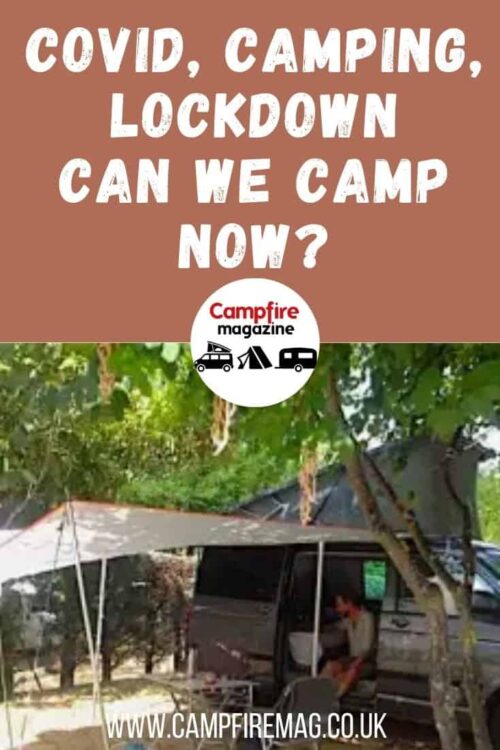
Are campsites open?
YES! As of the 12th April 2021 according to the gov website self-contained accommodation such as campsites and holiday lets, where indoor facilities are not shared with other households, can reopen.
This applies to the places in England and Wales.
Covid-19 has not gone away and it’s proven to be a horrible illness with long-lasting effects. You do NOT want to get it, nor do you want to give it to anyone else.
So, these are the rules we follow:
- We stay well away from everyone unless we’re CERTAIN they have been even more careful than us. It’s simply assessing risk on a person-by-person basis. Where have they been? Who have they been in contact with?
- We avoid busy places.
- We wear face masks in ALL public places. This is now mandatory in shops and public indoor spaces.
- We wash our hands whenever we touch anything outside our home.
- We do NOT drink bleach or take unproven ‘remedies’.
Currently the government have restricted number and meeting of other people so please make sure you follow the guides on the gov site when arranging to go camping with other people outside your household. Current guide (from 12th April)
- You must not socialise indoors with anyone you do not live with, unless you have formed a support bubble with them, or another exemption applies.
- Social distancing is still very important. You should stay 2 metres apart from anyone who is not in your household or support bubble where possible, or 1 metre with extra precautions in place (such as wearing face coverings) if you cannot stay 2 metres apart.
Meeting friends and family outdoors (rule of 6)
You can meet up outdoors with friends and family you do not live with, either:
- in a group of up to 6 from any number of households (children of all ages count towards the limit of 6)
- in a group of any size from up to two households (each household can include an existing support bubble, if eligible)
What differences can I expect on campsites when they reopen?
It’s been fascinating to see how popular our articles on camping toilets and camping showers have been. There’s certainly an assumption that having your own facilities will be useful in the future.
The problem for campsites, caravan parks and so on is that they have to show they’re taking measures against spreading the virus.
These measures have been put in place to limit the transmission of the virus.
These include wearing face coverings, screens, facing away from each other and more handwashing.
The guidance for sites states that campsites should carry out extra cleaning of shower and toilet blocks and consider introducing booked time slots for the showers to stagger use.
Some sites don’t feel ready to open because ensuring these measures is difficult for them. Smaller sites are especially worried about keeping staff and visitors safe because operating showers and toilets is complex. If they don’t have chemical toilet emptying facilities, then taking your own won’t be allowed.
Some of the changes you can expect are:
- Shared facilities like cafes, swimming pools and communal kitchens might not be open or only offer to serve you in an outdoor space only
- There may be fewer pitches to keep a distance between families
- Minimum stays might be for more nights to reduce comings and goings
- Masks will probably be compulsory
- You might need to book times for showers or queue at a distance
- It is likely the toilets & showers will not be open until the next easing of lockdown which will be 17th May
Can I camp with friends?
As of the 12th April you can meet friends and family outdoors following the rule of 6, we are not sure how campsites will feel about allowing guests to see you when you pitch up but we would assume this would be a no go but make sure you check with the campsite at the time of booking if this is something you want to consider if your visiting someone who lives near by.
Many campsites are not taking group bookings in an effort to keep numbers down and avoid larger gatherings of people.
Scotland may introduce rules round travelling at holiday times, so keep an eye on the news. Wales is closed to tourists. That’s hard to manage in practice (there are no borders), but it would be selfish to try to get around this – and local people will be justifiably furious with you!
Camping and Caravanning Club sites
As many as possible will reopen with toilet block facilities. Some campsites however, are open without toilets and showers.
Cleaning is being stepped up and, where facility blocks are open, there will be two deep cleans a day and four supplementary cleans.
“This places extra demand on our staff so we have had to look at campsites which are better suited to self-sufficient campers where facility blocks will not be open this season,” says the Club..
Unfortunately it’s likely that 26 sites will remain closed for the rest of the season.
These are the measures you can expect on Club sites and it’s likely they’ll apply to other larger sites too.
- Contactless check-in
- Sensible social distancing – pitches have six-metre spacing and they’ll reduce the number of people on Club Sites with facility blocks
- Signs and floor markings as a reminder to keep two metres from other people
- Campers can pitch their own toilet tent on their allocated pitch
- On campsites where facility blocks are open, you’ll be asked to use your own facilities as much as possible
- Individual bookings and no large groups.
What about wild camping?
Virus or not, wild camping isn’t allowed in (most of) England and Wales, although before Covid it was often possible to find a quiet spot if you were discreet.
In Scotland, wild camping is generally allowed, although some areas have specific rules (Loch Lomond and the Trossachs, for instance).
Sadly, bad behaviour from Covidiots in the national parks and in Scotland makes it more likely that wild camping will be policed more strictly.
Forestry England usually lets people camp in four locations in the Kielder Forest in the Northumberland. But now all wild camping has been banned there after scenes like this one below.

“Small communities are very sensitive to opening up (I live in NW Scotland) and if visitors are following the guidelines it really helps,” adds Sue. “This one about wild camping is mainly because so few facilities (toilets, campsites and shops) are open. Most real wild campers are very respectful and know how to look after the countryside. I’m a camper myself and also Mountain Rescue so know some of the issues. We are getting people roadside camping and leaving litter and human waste of the worst kind.”
If you’re planning on wild camping in Loch Lomond & The Trossachs, you’ll need a permit. See the section on Scottish National Parks.
Camping in the Scottish National Parks
National Park campsites and camping permit areas in Loch Lomond & The Trossachs are not open now. When they do reopen, you MUST book in advance.
Campers can stay at low-impact campsites (managed by the National Park Authority) on Loch Chon and Loch Achray, or book a permit to camp in areas within the Camping Management Zones.
Online booking will help manage demand for camping in popular lochshore areas around Loch Lomond & The Trossachs. www.lochlomond-trossachs.org is now live for bookings up two weeks in advance.
Capacity at the National Park campsites will be reduced to manage physical distancing and reduce pressure on facilities like toilets,
As for private campsites, not all will be allowing tents or campervans without facilities on-board.
Have a look at the Visit Scotland Covid advice site for the latest information.
How do I stay safe and keep others safe?
Camping should be one of the safest ways to take a holiday. You’re outside a lot, it’s easier to stay away from other people and you have your own cooking, eating and sleeping gear.
One thing is for sure. We can’t trust the government to keep us safe. Decisions are taken too late and came not from independent scientific advice but from keeping investors and big business happy.
So, we need to look after ourselves and people we come into contact with.
- Stay as far away from other people as you can. No point arguing whether it should be 2m or 1m…just keep your distance.
- We wear gloves and masks when we go shopping. We certainly would when using campsite facilities. Their efficacy may be debatable, but we’ve found they work well in reminding others to keep their distance. Why take the risk?
- Use your own equipment rather than shared gear.
- Think about what you touch – bin lids, hook-up points, gates – and wash your hands a lot!
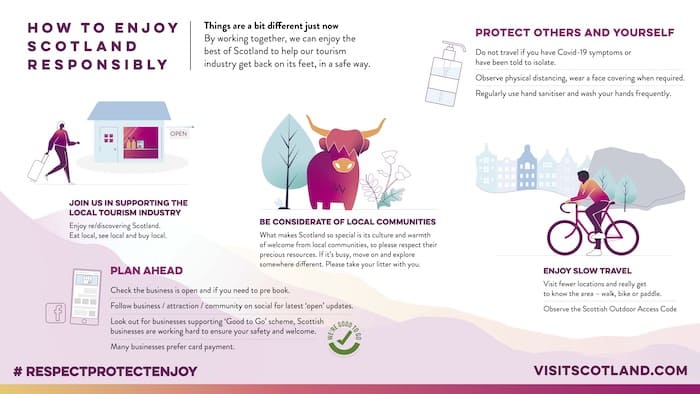
Can I camp in Europe?
NO! Currently it is illegal to do so, if you are in the UK you should not travel abroad unless you have a permitted reason to do so. It is illegal to travel abroad for holidays
When we are allowed, many campsites will be open in European countries, but infection rates are rising in most places.
We have to quarantine when coming back to the UK from a growing number of countries. And many countries don’t need the extra burden of travellers from high risk areas of the UK.
In August 2020, we spent five days camping in the north of the Netherlands. We would not do that now.
Things are changing quickly, so do check.
If infections in a country rise above 20 per 100,000 people, the government categorises that country as high-risk. If the FCO recommends ‘essential travel only’, then your travel insurance may be invalid if you travel against that advice.
Remember that quarantine rules are much stricter than lockdown. You can’t go further than your garden to exercise or walk the dog. Children can’t go back to school and you can’t have any visitors except carers. There are heavy fines.
We’ll update regularly, as things are changing almost daily (last update here 22nd Feb). But do check the FCO website too.
- Austria: Essential travel only. You need to show a medical certificate stating you don’t have coronavirus. Those without a certificate must self-isolate for 14 days. Testing is available at Vienna airport for €190.
- Belgium: In national lockdown. Quarantine on return to UK for 14 days.
- Denmark: Essential travel only. Masks mandatory.
- France: In national lockdown. No travel. Masks mandatory. Quarantine should you be there already and need to return. Curfews in place.
- Germany: In national lockdown. All 16 states have made it mandatory to wear masks in some public places.
- Ireland: Requires all arrivals (except from Northern Ireland) to provide details of accommodation and self-isolate for 14 days. Takeaways only from restaurants. 5km travel limit.
- Italy: Essential travel only. If you travelled outside the UK in the last 14 days, you do need to quarantine there, though. Bars, restaurants, non-essential shops, parks and museums are open. Some curfews. Masks mandatory.
- The Netherlands: Essential travel only. You must complete a health screening form and have it ready to show. Quarantine on return. Shops and some hotels are open. Masks are mandatory on public transport and all indoor public spaces. Curfews and closures for hospitality businesses.
- Norway: UK visitors need to quarantine there for 14 days. Check the latest here.
- Portugal: Essential travel only. Check the latest here.
- Spain: Essential travel only. You need to self-isolate for 14 days on your return to the UK. Hotels, beaches, museums, bars and restaurants are open. You must wear a mask in public spaces. Health screening on the way in.
- Sweden: No restrictions for travellers from the UK. Most places are open.
- Switzerland: Essential travel only. Hotels, shops, markets and restaurants are open. Outdoor sports with up to five people permitted. Theatres, museums, cinemas, swimming pools, ski resorts, spas, mountain services and other leisure activities are open.
Will campsites be crowded?
Now campsites are open, they have to make it easy for people to stay a safe distance from each other, so they won’t be crowded. Instead, it’ll be harder to get a booking or a pitch.
Bookings were up 750% the day after the reopening date was confirmed.
Crowds have already caused havoc at beauty spots, so it’s here that you might find it hard to stay apart.
For us, camping is about being close to nature, enjoying the outdoors, being somewhere lovely…it’s certainly not about sitting in a traffic jam through the Yorkshire Dales for three hours or finding you can’t see the waterfall for the backs of people’s heads.
We told the Sunday Post recently that we expected a boom in camping. In fact, we had 650,000 readers during July and August compared to 120,000 last July and August.
Many of these are people who’ve never camped before, How fantastic to see camping become so popular. However, until things get back to normal, too many campers isn’t a good thing – either for safety or for enjoying the experience.
We also believe, though, that the boom might be shortlived as soon as flights and overseas holidays become possible again.
Here’s hoping we can all go camping – peacefully, safely and pleasantly.
